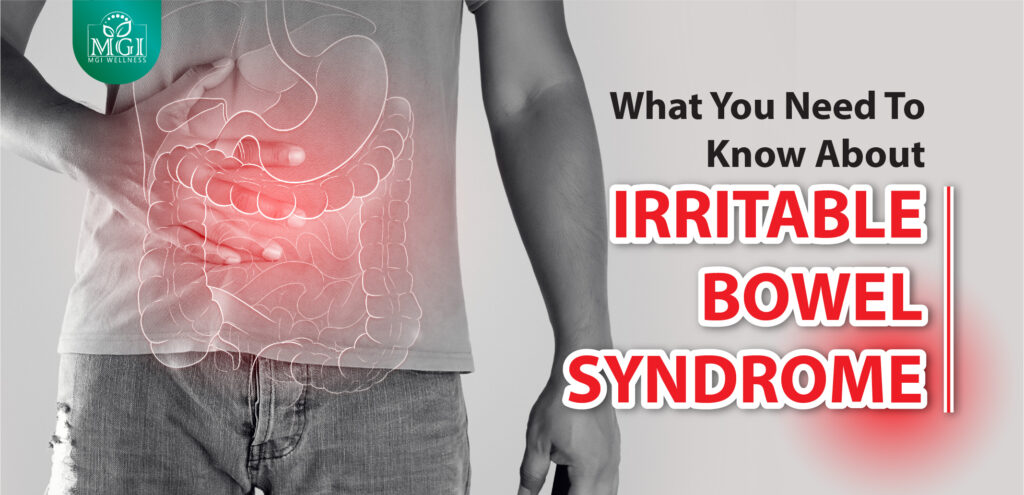Wellness
What you need to know about IBS?
What is IBS?
Irritable bowel syndrome (IBS) is a functional gastrointestinal (GI) disorder. Functional GI disorders, which doctors now call disorders of gut-brain interactions, are related to problems with how your brain and your gut work together. IBS causes abdominal discomfort or pain which is associated with altered bowel habits with the absence of organic disease. IBS does not reveal any abnormalities along the gastrointestinal (GI) tract with an endoscopy unlike other GI disorders, such as celiac disease, Crohn’s disease, or colitis.
There are 3 main types of IBS based on different patterns of changes in bowel movements
| 3 main types of IBS | Different patterns of changes in bowel movements |
| Diarrhea-predominant IBS | Loose stools >25% of the time; Hard stools <25% of the time
|
| Constipation-predominant IBS | Loose stools <25% of the time; Hard stools >25% of the time
|
| Mixed presentation IBS with alternating diarrhea and constipation | Loose stools >25% of the time; Hard stools >25% of the time
|
Symptoms of IBS
Some of the common symptoms of IBS include abdominal pain, bloating, cramping, diarrhea, constipation, or both depending on the type of IBS. Some may also experience whitish mucus in the stool. In women, the symptoms are more common during their menstrual period.
Causes/ Risk Factors of IBS
Anyone can get irritable bowel syndrome, but studies have found that the condition is more common in women. You may be at higher risk if you have the following:
- Family history of IBS
- Emotional stress, tension, or anxiety
- Food intolerance
- Severe digestive tract infection
Treatment for IBS
There is no one best treatment for IBS. Doctors may suggest changes to be done in your diet and other lifestyle changes. You may have to try a few treatments to see what works best.
Dietary changes:
- Increase fiber in your diet – eat more fruits, vegetables, whole grains and nuts
- Add supplemental fiber to your diet
- Probiotics
- Drink plenty of water
- Limit caffeine intake
- Record the foods taken so you can figure out which foods trigger your IBS flare-ups
- Follow a special diet called the low FODMAP diet
Lifestyle changes:
- Increasing your physical activity
- Reducing stressful life situations as much as possible
- Try relaxation techniques (e.g. deep breathing, aromatherapy, massage)
Your doctor may also recommend certain medications to relieve your IBS symptoms.
Reference:
- Canavan C, West J, Card T. The epidemiology of irritable bowel syndrome. Clinical epidemiology. 2014;6:71.
- Wilkins T, Pepitone C, Alex B, Schade RR. Diagnosis and management of IBS in adults. American family physician. 2012 Sep 1;86(5):419-26.
- Definition & Facts for irritable bowel syndrome [Internet]. National Institute of Diabetes and Digestive and Kidney Diseases. U.S. Department of Health and Human Services; [cited 2022Jan10]. Available from: https://www.niddk.nih.gov/health-information/digestive-diseases/irritable-bowel-syndrome/definition-facts
Health Food



wow, awesome blog article.Really thank you! Want more.
Hiya, I’m really glad I’ve found this information. Today bloggers publish only about gossips and net and this is actually annoying. A good site with exciting content, this is what I need. Thank you for keeping this web site, I will be visiting it. Do you do newsletters? Can’t find it.
I like this weblog its a master peace ! Glad I discovered this on google .